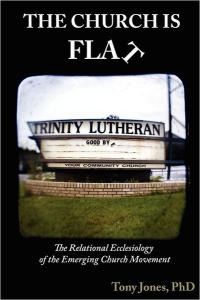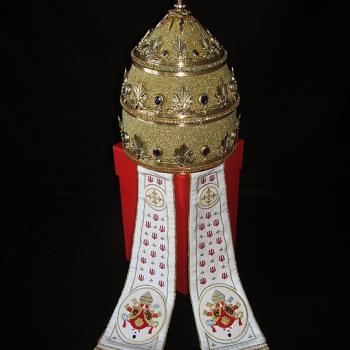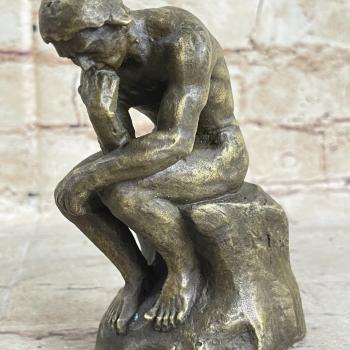The Upside-Down Kingdom: Chapter 11: Low Is High
According to Donald Kraybill, an Anabaptist theologian, Jesus abolished hierarchy among his followers. And his followers today, the church (the body of Christ and its faithful congregations and organizations) ought to follow his teachings and example about status and power.
Kraybill more than amply demonstrates this in Chapter 11. For those of you who read it, I don’t need to quote from it. For those of you who did not read it, I will summarize a bit here without quoting from it. The first group can agree or disagree and discuss Kraybill’s point and arguments. The second can ask questions.
According to Kraybill, and I agree with him whole heartedly, Christians ought to be like Jesus and eschew worldly status and power-over; hierarchy is foreign to the kingdom of God except, of course, that God is over all. In the words of Tony Jones, the church ought to be flat. This is a major reason I became a Baptist and then an Anabaptist (not a big leap).
Let’s begin with status. The world (aeon) elevates certain people over others in terms of importance and privilege, often for no particular reason other than their birth into a prestigious family or their fame. Unearned privilege is rampant in the world. Baptist theologian Walter Rauschenbusch deserves a mention here, something Kraybill didn’t give him. Rauschenbusch condemned unearned privilege—both in the churches and in society. Kraybill focuses on the churches. Unearned status and privilege is intrinsically evil. And, according to Kraybill, privilege itself belongs to the “least of these.” It is our Christian calling and duty to lift up the under-privileged, whoever they are, especially among us, and provide them with the same status and privilege as everyone else. In other words, privilege ought to be abolished among us.
Then let’s talk about power. Kraybill admits that Jesus had power, but he argues that Jesus did not abuse it but used it for the good of others. Power itself is not intrinsically evil except that it tends to corrupt those of us who are not God. We need to be suspicious of our own power, as well as others’, and seek to balance power. Again, I only fault Kraybill for not mentioning another theologian. In this case, Reinhold Niebuhr, who made “balance of power” the essence of justice. But it seems Kraybill would go further and argue that, at least among the brothers and sisters, power ought to be abolished. Leadership may and should exist, but not power-over. Perhaps a distinction needs to be made, and Kraybill admits this, between power and power-over.
Kraybill does not call his proposal “Christian anarchy,” but another Anabaptist theologian did. Vernard Eller wrote the classic of Christian anarchy entitled “Christian Anarchy: Jesus’ Primacy over the Powers” in 1987. I read it then and was entirely convinced. Since then, if not before, I have been a Christian anarchist—in Eller’s sense (and Kraybill’s).
I grew up in an American Christian denomination corrupted (in my opinion) by power-over, domination, and abuse of power. (I’m sure the denomination has by now changed.) How did I know? Because my family was close to the center of the denomination. My uncle was its president for 25 years. My aunts and wife worked in its headquarters as did my mother. My father was a pastor in the denomination for 53 years and served on its national board. But I did not know about its abuses of power until I attended its main Bible college. There I saw and experienced that. One chapel speaker, a leading minister of the denomination, was sent by the HQ to tell students that we ought never to question anything by the college’s or denomination’s leaders, no matter what we saw or knew. He was a disciple of Bill Gothard’s “chain of command” theology. During my four years in the college it had five presidents. Merely asking the wrong questions could get a student ostracized if not expelled.
I believe that truth trumps status and power, whatever its source may be. I told some uncomfortable truths about the college’s administration and was ostracized for it, even though there was no doubt about the truth of what I told. And the truth mattered.
This morning I preached about status and how we, as Christians, followers of Jesus Christ, ought to live and treat people as he did—loving the lowly and questioning the famous and powerful.
I had the misfortunate of teaching Christian theology in a well-known Christian university where the founder-president mistreated students, faculty and staff and was above all accountability. I saw him abuse lowly people, students, faculty and others, in public, with humiliation, for alleged disloyalty. I fled as quickly as I could.
This chapter touched me as none other in the book. I strongly believe that unearned privilege ought not to exist among Christians and even among people in general. I will go further and say that privilege itself ought to be abolished. Authority cannot be abolished in this world, short of the kingdom. But authority must be based on truth and knowledge and ability and ought to be granted by those over whom the person has authority.
The church ought to be flat. I agree with Tony Jones who agrees with Kraybill and Eller and Rauschenbusch (and maybe even Niebuhr). Our elders are elected by the congregants. The pastor has only teaching authority and even that is open to question. And, in our Anabaptist church, I see no privilege or power-over or status. That is as it should be an a major reason I finally, somewhat reluctantly, agreed to join. (I’m not entirely convinced about church membership.)
*Note: If you choose to comment, make sure your comment is relatively brief (no more than 100 words), on topic, addressed to me, civil and respectful (not hostile or argumentative), and devoid of pictures or links.*


















